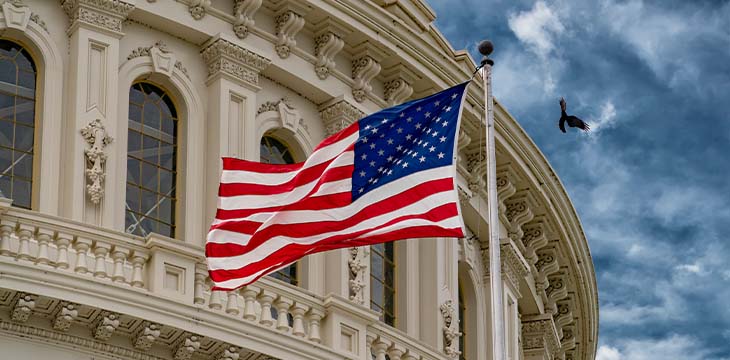|
Getting your Trinity Audio player ready...
|
United States officials have formally called on Congress to “step up its efforts” to regulate the digital asset industry in a report released this week.
The officials, Brian Deese, Arati Prabhakar, Cecilia Rouse, and Jake Sullivan issued the call following a year-long investigation into the risks posed by digital assets and the potential for the U.S. executive branch to mitigate them.
They said that while there have been positive developments in the past 12 months—such as last year’s framework for digital assets and increased enforcement by regulatory agencies—more is needed in light of the industry tumult that has occurred over the same period.
Though they don’t single out any companies specifically, it is notable that the assessment refers to “the proliferation of false or misleading claims about crypto assets being insured by the FDIC.” The FDIC, or Federal Deposit Insurance Corporation, sent cease and desist orders to several digital asset companies—including FTX—over false representations concerning whether their digital asset products are FDIC insured.
The officials make specific recommendations to Congress.
First, they ask that Congress expands regulators’ powers to prevent the misuse of customers’ assets and mitigate conflicts of interest.
They also urged Congress to strengthen transparency and disclosure requirements for digital asset companies so that investors can make informed decisions about financial and environmental risks. Despite sporadic SEC enforcement, such as that made against Ripple, many companies seeking to make digital asset offerings skirt the stringent investor disclosure requirements of the U.S. Securities’ regime by simply not registering themselves at all. This deprives the potential investors hooked in by these schemes of the benefit of accurate information on which they can base their choice.
Next, they suggest taking steps to aid law enforcement’s role in this area, such as by strengthening the penalties for violating illicit finance rules and banning digital asset intermediaries from “tipping off criminals.” They also suggest funding “greater law enforcement capacity building, including with international partners.”
They also directed their focus on the issue of financial stability, recommending that Congress implement the steps outlined in a recent report from the Financial Stability Oversight Council. That report warned of risks to the stability of the U.S. financial system if the industry’s interconnectedness with traditional finance continued to grow without appropriate regulation and enforcement.
It identified three gaps in digital asset regulation that Congress must plug: lack of direct federal oversight on the spot market for digital assets, the opportunity for regulatory arbitrage, and the open question of whether ‘vertically integrated market structures’ can or should be accommodated under existing laws and regulations.
As a final note, the officials warn that any action taken by Congress could potentially “make our jobs harder and worsen risks to investors and to the financial system.” It cites the possibility of greenlighting mainstream institutions, such as pension funds, to incorporate digital asset markets into their portfolios.
“In the past year, traditional financial institutions limited exposure to cryptocurrencies has prevented turmoil in cryptocurrencies from infecting the broader financial system. It would be a grave mistake to enact legislation that reverses course and deepens the ties between cryptocurrencies and the broader financial system.”
Watch: New Technologies, New Futures for Nations

 02-18-2026
02-18-2026 




